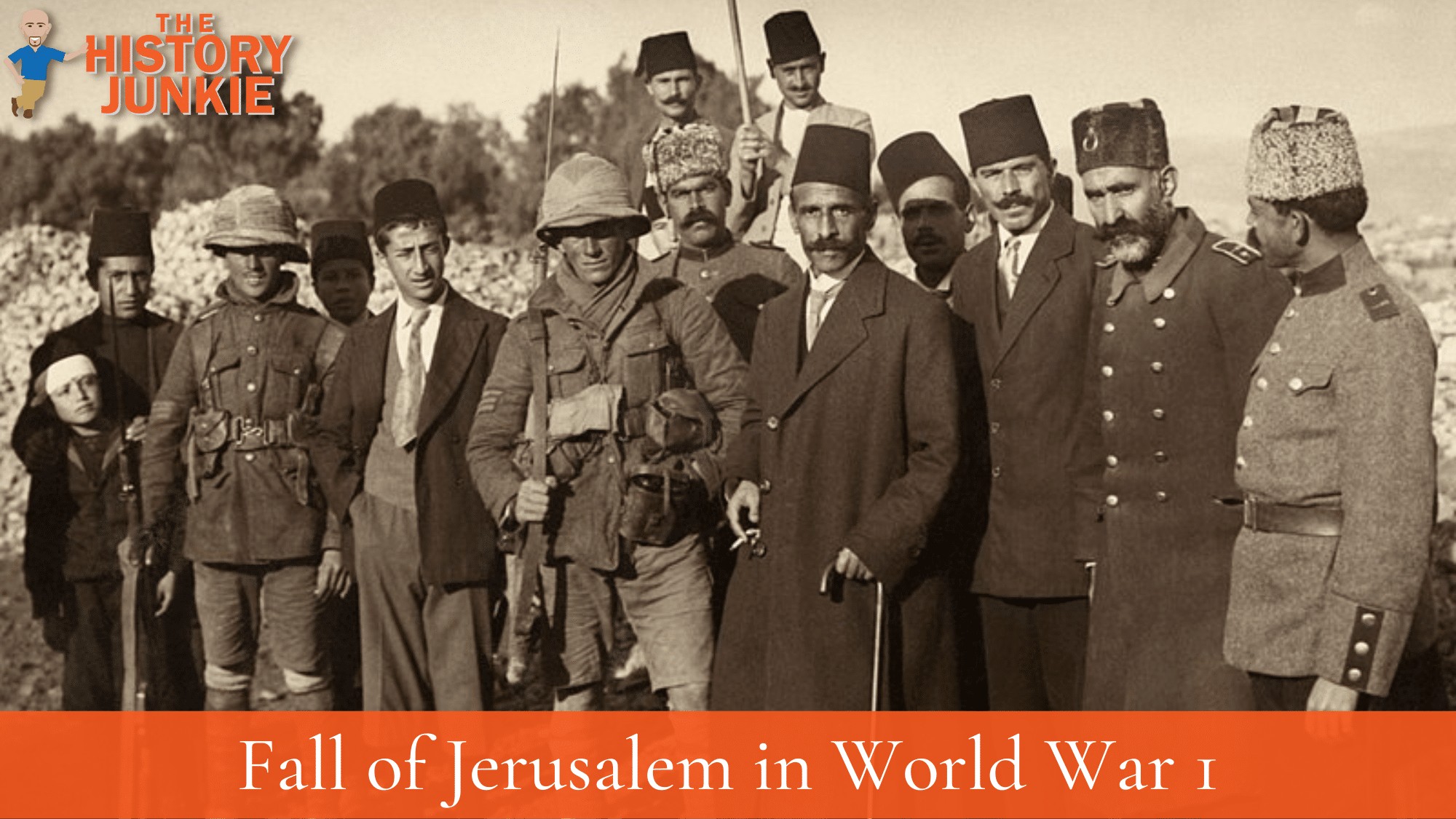After the Battle of Mughar Ridge on November 13, 1917, British Commander-in-Chief Sir Edmund Allenby quickly marched eastwards towards Jerusalem through the Judea Hills.

While his right flank headed for the Judea Hills, Allenby's left flank adopted a defensive posture at Jaffa, which the British had recently secured.
Allenby was aware that General Erich von Falkenhayn's Yilderim Force had arrived, significantly strengthening the Turkish lines from Jerusalem to the sea.
Jump to:
The Battle
Falkenhayn quickly launched attacks from his Seventh Army, slowing Allenby's advance. It became clear that Allenby would need to consolidate his forces before he could capture Jerusalem.
Both commanders had been ordered to avoid fighting in or around the holy city.
After reinforcing his front-line forces, Allenby assigned the task of capturing Jerusalem to XX Corps under Sir Philip Chetwode. Chetwode's attack began on December 8.
The assault took two forms: a central thrust from Nebi Samweil, a commanding series of heights several miles to the west, and a secondary attack south at Bethlehem.
The city fell after a single day of fighting. Turkish morale had plummeted due to the British's continual successes and the failure of Turkish counterattacks. However, sporadic fighting continued in the surrounding hills for a few days after Jerusalem's fall.
Allenby, demonstrating a fine political sensibility, entered the holy city on foot on December 11. He wanted to show respect for the city's religious significance.
On December 26, Falkenhayn launched a counter-attack, but it was unsuccessful. The Turks suffered heavy losses, while the British suffered relatively few.
Aftermath
The loss of Jerusalem was a major setback for the Ottomans. It damaged their prestige in the region and weakened their Yilderim Force.
Allenby secured the British line from Jerusalem to the sea, fulfilling British Prime Minister David Lloyd-George's instruction to take Jerusalem by Christmas weeks ahead of schedule.
The news of its capture brought much-needed relief to Allied capitals in Europe, offsetting less satisfying news from Russia, Caporetto, and Cambrai.
In the wake of Allenby's success, the War Office in London postponed operations in Mesopotamia in preparation for a renewed offensive in Palestine.
